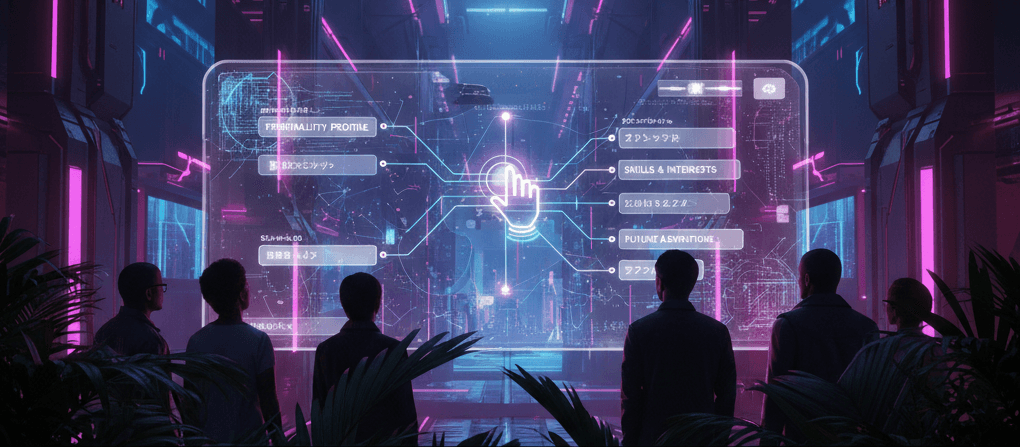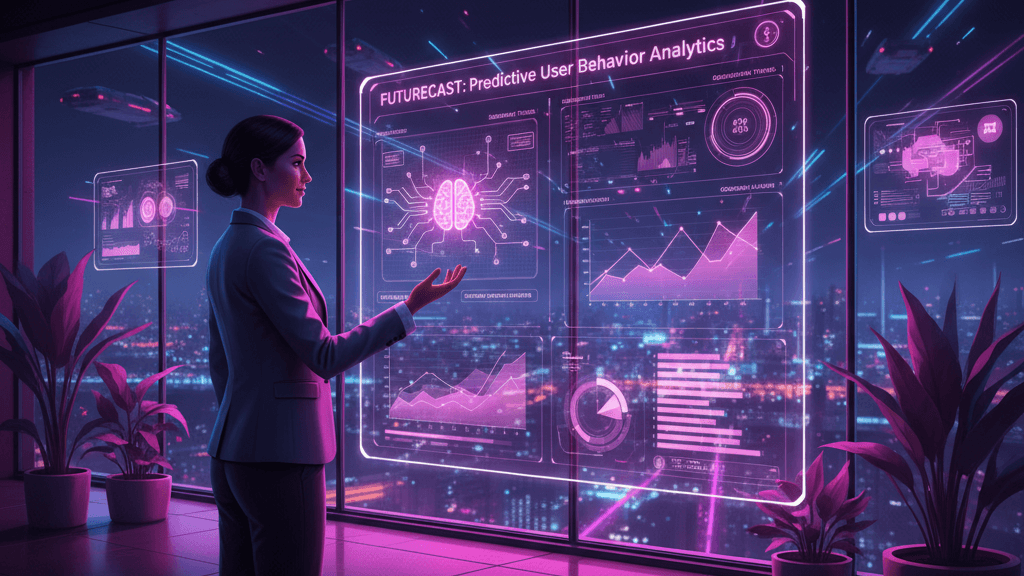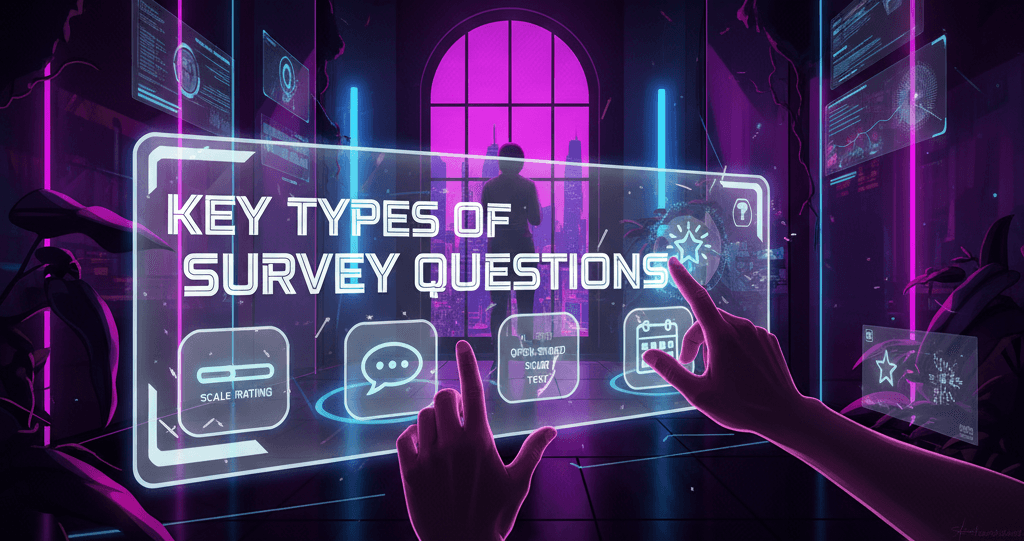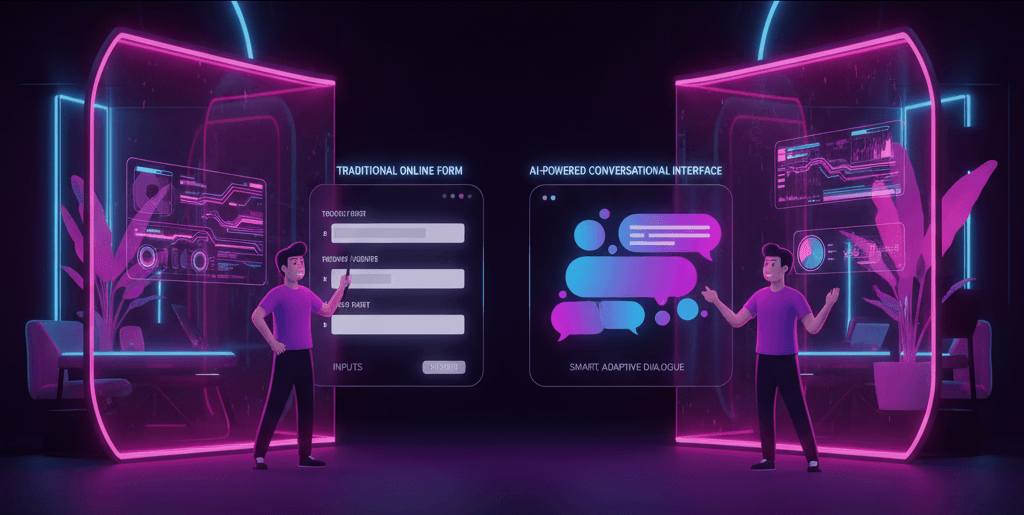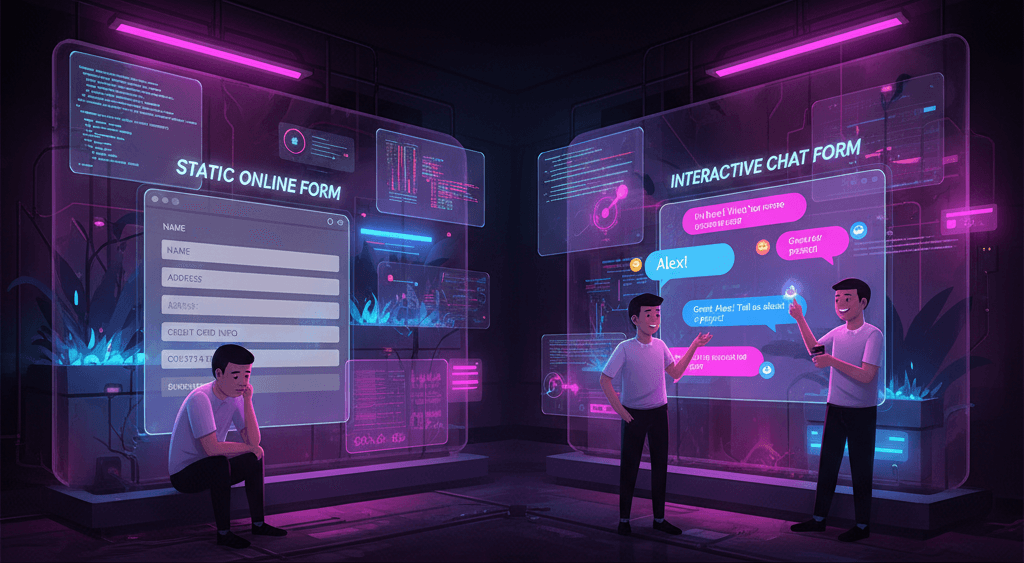In today’s fast-paced digital world, customer expectations have evolved dramatically. No longer are they satisfied with waiting on hold for long periods or navigating complicated phone menus just to get a simple question answered.
Customers want instant, accurate, and personalized service, anytime, anywhere.
AI customer service agents are transforming the customer support landscape by dramatically enhancing self-service options.
Unlike traditional support systems that rely heavily on human agents and manual processes, AI-driven solutions provide fast, efficient, and personalized assistance without requiring human intervention.
This shift not only improves customer satisfaction but also streamlines business operations, reducing costs and scaling support capabilities.
This article will delve into how AI customer service agents enhance self-service experiences, discuss their underlying technologies, highlight real-world examples, identify challenges and solutions, and explore future trends shaping customer support.
Understanding AI Customer Service Agents
What Are AI Customer Service Agents?
AI customer service agents are advanced software applications designed to simulate human-like interactions with customers. They leverage artificial intelligence to interpret, understand, and respond to customer queries in a natural, conversational way.
Unlike rule-based chatbots or simple FAQ pages, AI agents analyze the intent behind a customer’s question, process contextual information, and generate responses that feel personalized and relevant.
They can engage in multi-turn conversations, meaning they remember previous parts of the interaction and tailor their answers accordingly.
For example, when a customer asks, “Where is my order?” an AI agent doesn’t just provide a generic response but pulls specific order data based on the user’s identity to give real-time status updates.
Core Technologies Behind AI Agents
- Natural Language Processing (NLP): This technology enables machines to understand human language, both written and spoken. NLP breaks down sentences, identifies keywords, intent, and sentiment, helping AI interpret customer needs accurately.
- Machine Learning (ML): ML algorithms allow AI systems to learn from past interactions and continuously improve. For example, if an AI agent misinterprets a question, feedback can be used to refine future responses.
- Conversational AI: Combining NLP and ML, conversational AI enables smooth, human-like dialogues. It can handle nuances like slang, idioms, and context shifts.
- Speech Recognition and Text-to-Speech: In voice-based AI agents, these technologies convert spoken words into text and vice versa, enabling phone and smart speaker interactions.
Evolution from Basic Automation to AI
Initially, customer self-service was limited to static FAQ pages and IVR (Interactive Voice Response) phone menus.
These systems followed pre-set scripts and often failed to understand complex queries or provide personalized assistance, leading to user frustration.
The integration of AI has revolutionized these experiences. Modern AI agents can manage complex conversations, anticipate user needs, and provide context-aware support, transforming self-service from a transactional interaction to a personalized experience that builds customer loyalty.
The Rise of Self-Service in Customer Support
Growing Consumer Demand for Self-Service
Recent studies underscore the growing preference for self-service.
According to Microsoft’s 2023 State of Global Customer Service report, 88% of customers expect companies to provide self-service portals, and 75% prefer solving issues on their own before contacting support.
Customers want the convenience of solving problems instantly without being tethered to business hours or waiting on hold.
The COVID-19 pandemic accelerated digital adoption, making self-service a critical component of customer experience strategies.
Benefits of Self-Service for Businesses and Customers
- 24/7 Availability: AI agents ensure customers get help anytime, boosting satisfaction and reducing frustration linked to limited support hours.
- Cost Reduction: Automated self-service reduces the burden on live agents, lowering labor costs and enabling resources to focus on high-value tasks.
- Scalability: AI systems can handle thousands of simultaneous interactions without increasing costs, enabling businesses to grow support without scaling teams linearly.
- Empowerment and Speed: Customers gain control over their service experience, accessing solutions faster and more conveniently.
Challenges of Traditional Self-Service
Traditional self-service often involves cumbersome navigation through FAQs or menu trees that may not directly address customer needs. This can cause customers to abandon attempts at self-help, leading to increased calls or negative brand perceptions.
Furthermore, these legacy systems usually lack personalization and do not adapt based on user feedback or behavior, resulting in generic and sometimes inaccurate information.
How AI Enhances Self-Service Options
Instant Responses
AI-powered customer service agents dramatically reduce wait times by providing immediate answers. For instance, when a customer visits a website or opens a mobile app and asks a question in the chat window, the AI agent instantly processes the query and delivers a relevant response, day or night.
This real-time responsiveness reduces frustration and improves customer satisfaction, as users don’t need to wait for human agents to become available.
Personalization of Interactions
AI agents use customer data, such as purchase history, account details, and past interactions, to deliver personalized support. For example, a customer asking about product recommendations will receive suggestions based on their previous purchases or browsing history.
Personalized interactions increase relevance and engagement, making customers feel valued and understood. AI can also tailor tone and language to different customer segments, enhancing brand consistency and trust.
Proactive Support
One of AI’s standout capabilities is its ability to anticipate customer needs. By analyzing patterns and historical data, AI agents can proactively reach out with helpful information or alerts.
For example, an airline’s AI system might notify passengers about flight delays or gate changes before they even ask, guiding them through rebooking if necessary. This reduces inbound inquiries and builds goodwill.
Multilingual Capabilities
Global companies serve customers speaking various languages. AI customer service agents can support multiple languages simultaneously with high accuracy, breaking down language barriers and expanding accessibility.
This capability is especially valuable for businesses with international audiences, enabling seamless, localized self-service without hiring multilingual agents.
Seamless Integration Across Channels
AI agents unify self-service experiences across platforms, websites, mobile apps, social media, and voice assistants, creating consistent, frictionless interactions.
For example, a customer could start a conversation via a website chatbot, continue it later through a mobile app, and even finish by voice command at home, all without repeating information. This omnichannel experience improves convenience and customer satisfaction.
Real-World Applications and Success Stories
Case Study 1: Retail Brand’s AI Chatbots Reduce Support Tickets
A leading retail chain deployed AI chatbots across its website and mobile app to manage inquiries about order tracking, returns, product availability, and store locations. The AI handled 60% of customer queries autonomously, resulting in a 30% reduction in support tickets routed to human agents.
Customers praised the quick answers and round-the-clock availability. The company also noted reduced call center costs and improved operational efficiency.
Case Study 2: Telecom Company Uses AI-Powered IVR for Billing
A major telecom operator upgraded its IVR system with AI capabilities that understand natural speech instead of requiring customers to navigate rigid menus. Customers could simply say, “What’s my current bill?” or “Pay my bill,” and the AI responded accurately.
This improvement led to a 20% rise in customer satisfaction and shortened average call times by 40%, allowing agents to focus on complex technical support.
Case Study 3: Financial Institution Deploys AI for Fraud Detection
A bank implemented AI customer service agents that help customers report suspicious activity and verify transactions through chat and voice channels. AI analyzed transaction data in real time and flagged potential fraud patterns, alerting customers proactively.
This system reduced fraudulent claims by 15% and improved trust, as customers felt their accounts were monitored 24/7.
Measuring the Impact of AI in Self-Service
Key Performance Indicators (KPIs)
To quantify AI’s impact, companies track several KPIs:
- Customer Satisfaction (CSAT): Measures how customers rate their AI interactions, reflecting ease of use and helpfulness.
- Net Promoter Score (NPS): Indicates overall customer loyalty and willingness to recommend the company after AI-assisted service.
- First Contact Resolution (FCR): Percentage of queries resolved fully in the first AI interaction, a critical metric for efficiency.
- Average Handling Time (AHT): Tracks the time AI takes to resolve issues, with shorter times indicating better performance.
- Containment Rate: The percentage of queries fully handled by AI without escalation to human agents.
Analytics and Continuous Improvement
AI systems generate detailed interaction logs that provide insights into customer behavior and common issues. By analyzing these data, businesses can identify gaps in AI knowledge bases, optimize conversational flows, and improve response accuracy.
Machine learning models also benefit from ongoing training with fresh data, enabling them to adapt to changing customer needs, new products, or updated policies.
Overcoming Challenges in AI Implementation
Data Privacy and Compliance
Handling sensitive customer data with AI requires strict compliance with regulations like GDPR (Europe) and CCPA (California). Businesses must implement robust encryption, data anonymization, and transparent privacy policies.
Customer consent for data collection and usage is critical, along with options to opt-out of AI interactions or escalate to human agents.
Integration with Legacy Systems
Many companies rely on outdated CRM or ERP systems. Integrating AI customer service agents requires seamless API connections, middleware solutions, or even system upgrades.
This integration ensures AI has access to up-to-date customer data, enabling accurate, personalized support.
Building Customer Trust
Customers may be skeptical about AI’s accuracy or worry about privacy. Clear communication about how AI works, its benefits, and the option to connect with human agents builds confidence.
User-friendly design, transparency, and seamless handoffs to humans when needed also improve acceptance.
Continuous Training and Monitoring
AI agents need regular updates and retraining to keep pace with evolving products, services, and customer language trends. Dedicated teams should monitor AI performance metrics and customer feedback, addressing shortcomings proactively.
The Future of AI-Powered Self-Service
Emerging Trends
- Emotion Recognition: AI that detects customer emotions via text tone or voice inflection to adapt responses empathetically.
- Hyper-Personalization: Leveraging advanced analytics to tailor experiences at an individual level, offering proactive solutions before customers ask.
- Voice-First Interfaces: Growing use of smart speakers and voice assistants to provide hands-free customer service.
- Augmented Reality (AR) Support: Integrating AI with AR to offer visual, interactive guidance for complex product setups or troubleshooting.
- Cross-Industry AI Collaboration: Shared AI models trained on diverse datasets to improve knowledge and reduce biases.
How ZinQ AI Forms Can Help You Here
ZinQ AI Forms is an innovative AI-powered tool designed to elevate your customer self-service experience by simplifying data collection and automating personalized responses.
By integrating ZinQ AI Forms into your support ecosystem, you can create dynamic, interactive forms that adapt to each customer’s inputs in real-time, delivering tailored assistance without the need for human intervention.
Streamlined Data Collection
Traditional forms are often static and frustrating, causing users to abandon them midway. ZinQ AI Forms uses AI to intelligently adjust questions based on previous answers, ensuring customers only see relevant queries.
This reduces form fatigue and improves completion rates, which means more accurate and complete customer information to power your AI agents.
Enhanced Personalization
By capturing detailed customer inputs and preferences through ZinQ AI Forms, your AI customer service agents gain deeper insights into individual needs.
This allows them to offer highly personalized solutions, recommend products or services, and resolve issues faster, all within a seamless self-service flow.
Automated Issue Resolution
ZinQ AI Forms can be configured to trigger automated workflows based on user responses.
For example, if a customer reports a problem via a form, the AI can instantly suggest relevant troubleshooting steps, schedule a callback, or escalate the case to a human agent if needed, all without delays.
Integration with Existing Systems
ZinQ AI Forms easily integrates with popular CRM, helpdesk, and communication platforms, enabling smooth data transfer and centralized management.
This ensures your AI customer service agents have real-time access to the latest customer data and can deliver context-aware support across all channels.
Why Choose ZinQ AI Forms?
- Flexible and Customizable: Create forms tailored to your unique customer service workflows.
- AI-Driven Adaptivity: Dynamic forms that evolve based on customer input for optimal user experience.
- Scalable: Handle thousands of customer interactions simultaneously without sacrificing quality.
- Data Privacy Compliant: Built with strict security protocols to safeguard customer information.
Incorporating ZinQ AI Forms into your customer support strategy can significantly enhance your AI-driven self-service capabilities, making customer interactions more efficient, personalized, and satisfying.
This powerful combination ensures you stay ahead in delivering exceptional customer experiences in an increasingly digital world.
Want to try out zinq? Start here.
Conclusion
AI customer service agents are revolutionizing self-service by providing instant, personalized, and accessible support 24/7. These intelligent systems enhance customer satisfaction, reduce operational costs, and empower businesses to scale efficiently.
While challenges exist around privacy, integration, and trust, ongoing advancements in AI technology and thoughtful implementation strategies promise a future where customer service is not only automated but also genuinely human-centered.
Businesses embracing AI-driven self-service today are well-positioned to meet the demands of modern customers and build lasting relationships in an increasingly digital world.




